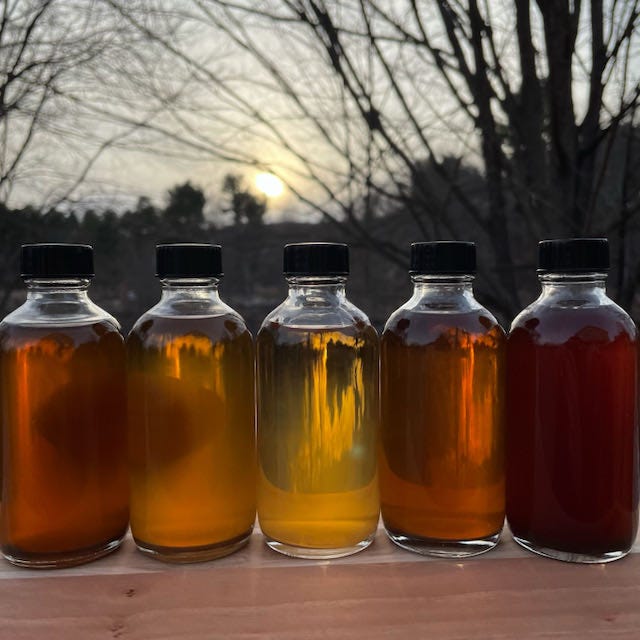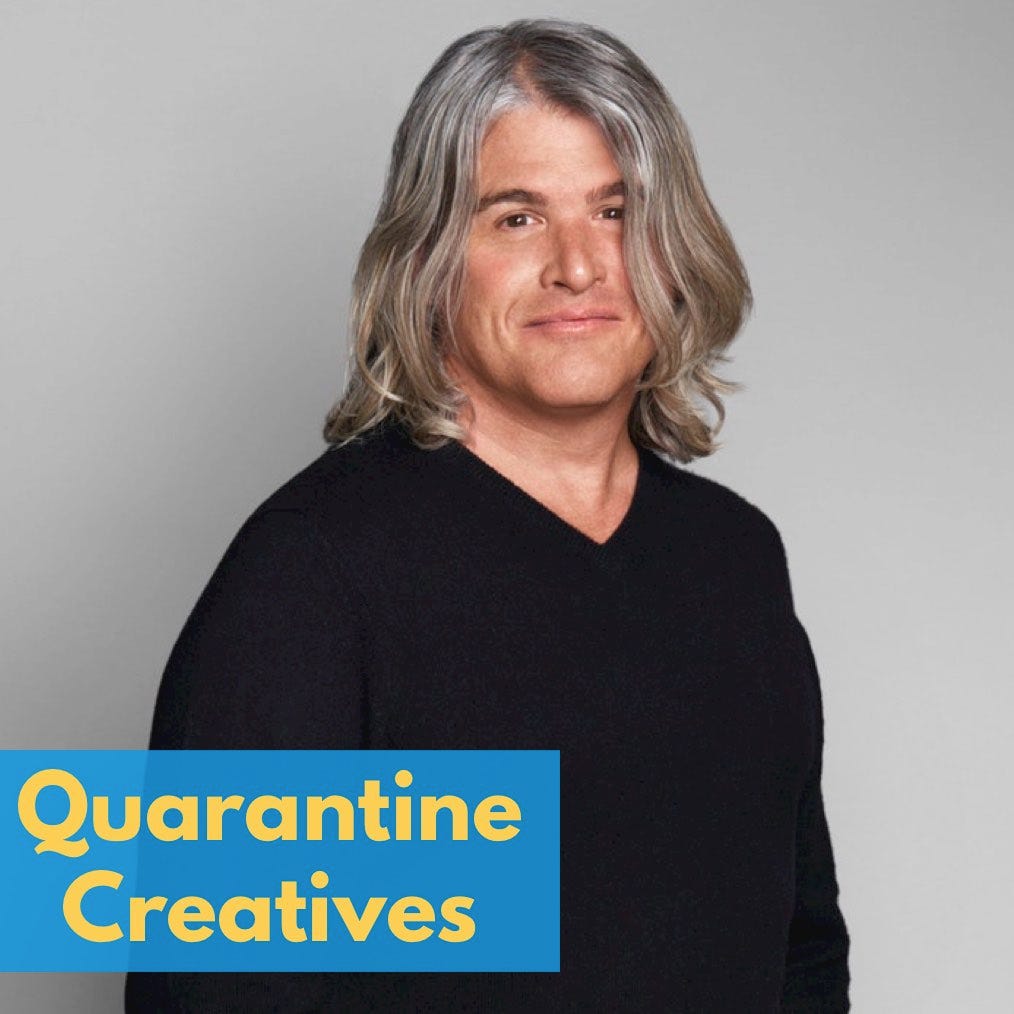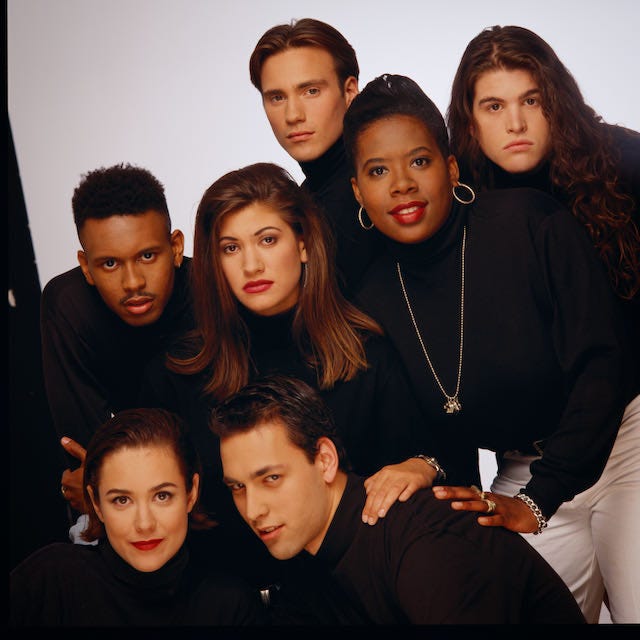Welcome to the Quarantine Creatives newsletter, a companion to my podcast of the same name. If you enjoy what you read here, you can subscribe to have this newsletter delivered to your inbox every Sunday:
The Beginning?
I have been thinking a lot lately about innovation and originality. Some of these seeds were planted a few weeks ago during my interview with Square co-founder Jim McKelvey. In his book The Innovation Stack, he argues that humans are wired to copy each other, and that most of the time, that’s exactly what we do.
As those thoughts have been percolating, this past week’s interview with Andre Comeau happened. I’ll dive deeper into the interview below, but Andre was one of the seven original cast members on the groundbreaking MTV show The Real World in 1992.
Growing up, I was very aware of The Real World, and spent many hours watching seasons like Seattle, Hawaii, and New Orleans. At that point, the show had been on for less than a decade and had already spawned spin offs like Road Rules. But it wouldn’t be until the early 2000s though when I remember the term “reality TV” being used more regularly to describe shows like Survivor or American Idol, which to me were more like game shows than true reality shows.
In my mind, The Real World was the always original reality show. Its format was simple: give seven strangers in their late teens and early twenties from very different backgrounds an amazing place to live in a great world city and then film what happens. Of course there were hook ups, intense fights, silliness, and moments of boredom, but there was also a place for empathetic conversations about big issues like race, LGBT rights, HIV/AIDS, and other social topics. But most importantly, despite the contrived nature of the scenario, there was never the sense that there was a strong hand of a producer present, asking for retakes, feeding lines, etc.
As I started to research this interview with Andre though, I began to question how firmly The Real World could claim the title as “the original reality show.” On the Wikipedia page for The Real World, Dutch TV producer Erik Latour believes that his 1991 show Nummer 28 was the blueprint for The Real World. There were shows with real people like Cops, where a camera crew simply rode along with real police officers as they made arrests, that also predated the show.
Of course, from a filmmaking perspective, documentaries have often followed a similar format to The Real World, with PBS’s 1971 documentary series An American Family often being cited as the origin of the reality TV genre. The cinéma vérité style became popular in the 1960s, made possible with the advent or portable film cameras. When I worked at This Old House, it was often cited as one of the pioneers of reality television, although I always saw that as a bit of a stretch.
The point of all of this is that we all put a lot of creative energy into making something wholly original, but we are always borrowing pieces and parts from elsewhere, even if unconsciously. In the end, it doesn’t really matter who was first, but who was most effective and had the biggest impact. As creatives, it helps to have a deep pool to inspire us, and that inspiration might not necessarily be rooted in TV or cinema.
Over this past year, as I’ve been able to focus on other hobbies and passions like baking, woodworking, or making maple syrup, I think it has made me a stronger producer. That source of inspiration and reference points will be different for all of us, but it’s important to have plenty of wells from which to draw, both within and away from the industry.
Episode 77- Andre Comeau
As I mentioned above, last week, I spoke with original Real World cast member Andre Comeau. Andre and his fellow cast members from the first season of The Real World recently reunited for a new series on Paramount+ called The Real World Homecoming. They moved back to New York City for one week and had that reunion taped. Here’s the trailer:
When Andre first got wind of a reunion, especially during the height of the pandemic, he was skeptical that it would really get off the ground:
“When they told me what they were planning on doing, bringing the originals together, and actually living together and filming it, much like the original season, I thought Well, that sounds like a whole lot of fun, but we’ll see if it actually happens. There are so many hurdles they need to jump before this thing can actually happen, including getting everybody on board, including doing it in the time of COVID, so we’ll see if it happens.”
The producers were able to involve the whole cast and come up with COVID safety protocols that allowed them to tape this past December. Homecoming was not just set in the same city, but in the exact same apartment where the series had started in 1992. Throughout the negotiations, the shooting location was not revealed, so Andre and his cast mates were surprised when they pulled up to a familiar building. He recounts what it felt like being inside the same loft:
“So many things were exactly the same. I liken it to going to a school that you’ve graduated from many years ago and looking around and knowing that so many things have stayed the same while you’ve changed. That’s really how I see it and how it felt.”
While the entire cast has never reunited, they have stayed connected over the years. Andre shared that they have a group text thread going and they often will make a point to get together in small groups when they visit another cast member’s hometown. Even though the original filming took place over three short months, Andre explained why he thinks his cast has such a strong bond:
“The thing that really kept us bonded was the cultural impact that the show actually had, given the fact that we’re so often reminded of it, whether we like it or not. It will always be the thing people want to ask about, talk about. That will always keep us very, very close, besides the fact that I honestly truly do like all of them, and that helps a lot. Because if I didn’t enjoy their company, I would probably not want to participate in the functions that deal with The Real World.”
Prior to the reunion, Andre went back and watched his season for the first time since it had originally aired and was happy with his season, although he expressed some mixed emotions about helping to launch reality TV. He described the changes that he saw in subsequent seasons of The Real World too:
“The show, the production company, really changed what they were searching for in casting after my season. I don’t think that they were really going for the same thing in subsequent seasons that they went for with my cast. We were all artists to some degree with our careers very much in motion when we entered that space.”
If you haven’t heard it yet, the full interview is really fascinating. Andre talks about the filming process, both during the original season and for Homecoming. We also talk about his life post-Real World, including his career in music, his family, and his scare with COVID-19 in February, 2020. It’s a really interesting conversation.
What’s Coming…
On Thursday, I have a really fun talk with Eric and Rashi Wiese, who were recently named the new hosts of Lucky Dog on CBS. They are dog trainers in Los Angeles that help train and place rescued pups in new homes. We chat about the rise of dog adoptions during the pandemic, plus the challenges of making the show during COVID, and their experience as new TV hosts. I hope you’ll check it out on Thursday!
If you have questions, comments, thoughts, ideas, or anything else that you’d like to share, please feel free to email me anytime: hracela@mac.com
If you’re an Apple Podcasts user, please consider leaving a rating or review for Quarantine Creatives. It only takes a minute, but it helps bring in new listeners.
And please consider sharing this with a friend that you think might enjoy reading this, or better yet, share it on social media so you can tell hundreds of friends!
If you’ve missed past issues of this newsletter, they are available to read here.
Stay Safe!
Heath







